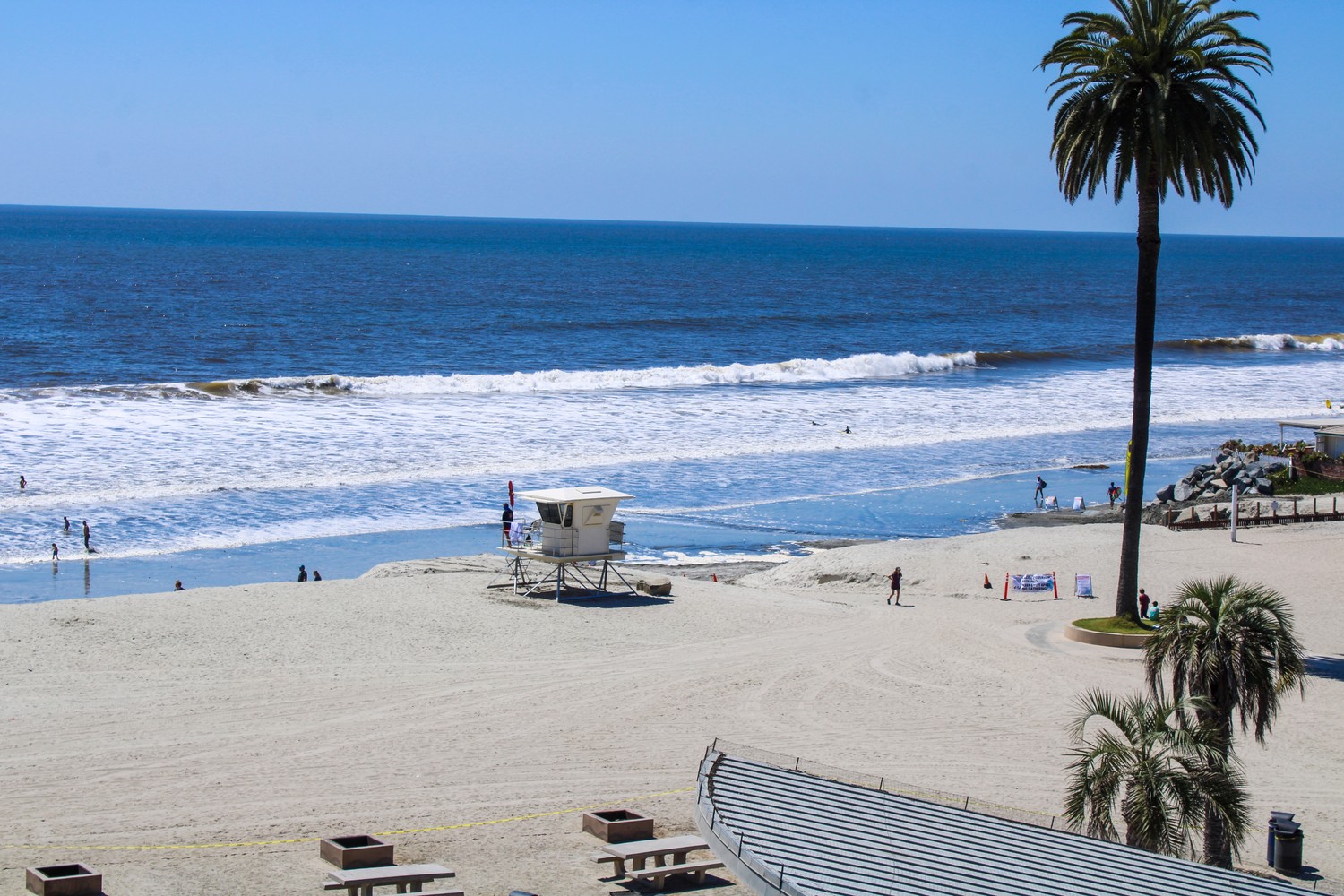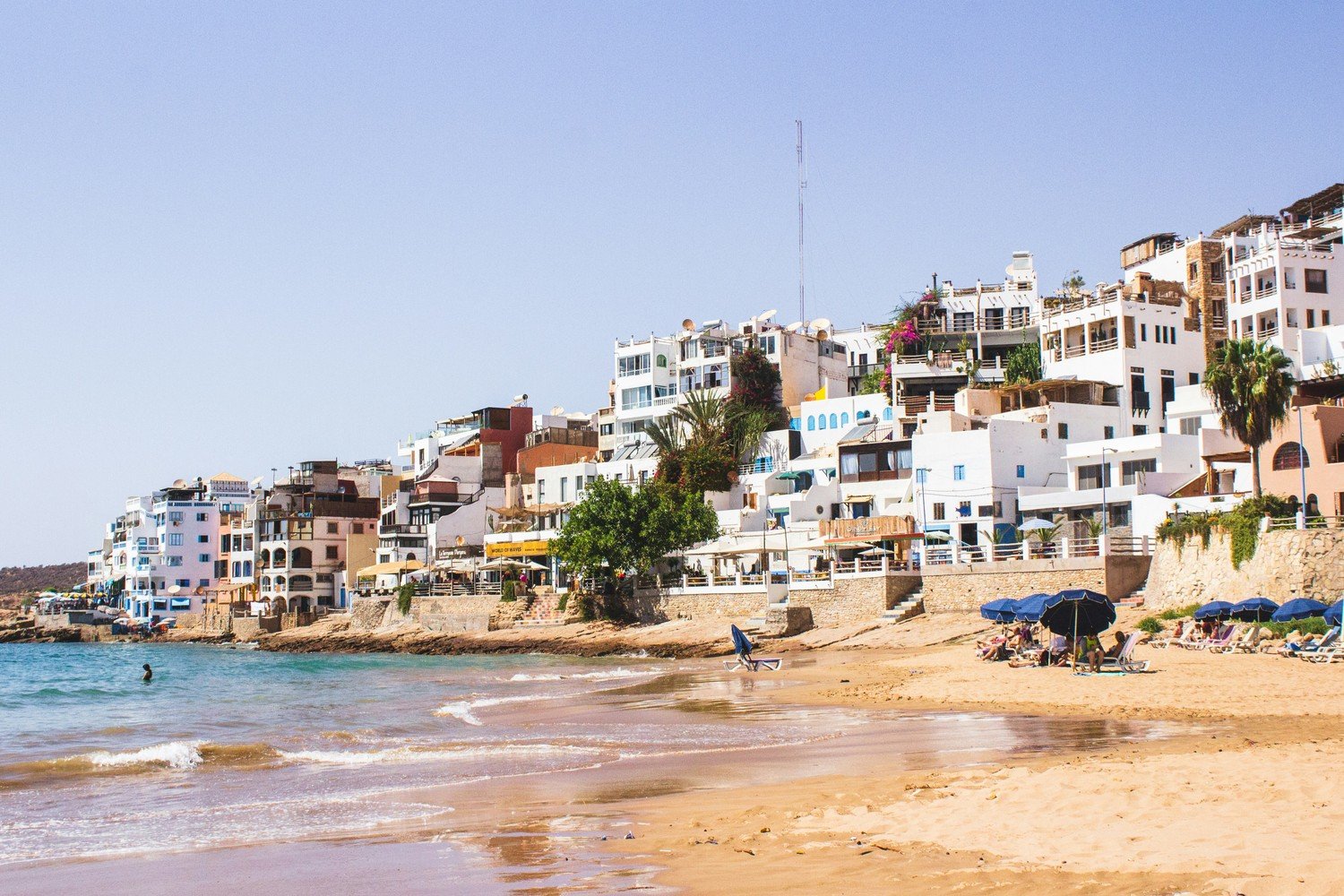
Destination or Hotel
Departure Airports
Travel Dates
Flexible +/-3 days
Nights
Flexible +/-3 days
Guests
Price Match Promise
Flexible +/-3 days
Price Match Promise

It’s Official: Spain Has Announced a Four-Phase Plan to Ease Coronavirus Lockdown Restrictions
By
Ricky Durrance
10 Dec 2020
UPDATED 12th MAY 2021
From May 17th, Spain will be placed on the amber travel list. Before you travel back to England you must complete a passenger locator form, take a COVID-19 test, book and pay for day 2 and day 8 COVID-19 travel tests which need to be taken after arrival in England. Then when you return home you must quarantine at home or in the place you are staying for 10 days and take a COVID-19 test on or before day 2 and on or after day 8.
Teletext Holidays is here to report on the current state of affairs in Spain, so you can make an informed decision about whether and when to travel.
As a result of the coronavirus crisis, Spain has endured one of the world’s strictest lockdown policies since 14 March, when the Spanish government declared a state of emergency.
Now there are signs that the danger is passing. Many regions in Spain are entering the fourth stage - new normality - of a four-phase plan to recovery. Excitingly, Spain has now opened its borders and lifted quarantine requirements for EU, British and Schengen area visitors as of 21 June (with the exception of Portugal), and for other international visitors from 1 July. Yes, you read that right: Spain has officially opened its doors to Brits!
However, it’s important to note that the UK government once again recommends that you don’t travel to Spain unless absolutely necessary - and even then, once you return back to the UK after your trip, you will have to self-isolate for 14 days. It looks like it’s best to hold off on booking your holiday for the time being… but we’ve got our fingers crossed that Spain will return to the list of government-approved travel corridors soon!
Spain may be off the travel corridors list, but Greece is still considered a safe destination to visit - so why not switch out your Spanish summer hols for a Grecian getaway? It’s a beautiful beach destination and not too shabby a second choice to Spain!'
Ryanair and EasyJet have announced to be resuming a percentage of flights from 1 July and 15 July, respectively. This is great news for British residents looking to travel to Spain, especially now that the FCDO travel advice no longer advises against all but essential international travel.
So when can you expect to grab your passport, pack your suncream and prepare for some Spanish sunshine?
What is Spain’s Four-Phase Plan?
At the end of April Prime Minister Sánchez announced the country’s plans for a phased reopening. Spain’s provinces and islands have been easing restrictions at different rates, depending on how severely each region was affected by the coronavirus. Progress was closely monitored, with modifications made as circumstances dictated.
The phases’ exact starting dates aren’t guaranteed since so much depends on how the situation unfolds, but each phase is projected to last for about two weeks (not coincidentally the time frame in which somebody infected with COVID-19 should begin to show symptoms).
PHASE 0 : 26 APRIL
Baby steps have already been taken in the pre-preparation phase. Children under 14, who have essentially been under house arrest since 14 March, were set free on 26 April – but only for an hour a day so far. Their parents and other adults have been allowed out as of 2 May.
PHASE 1 : 11 MAY
In this preparatory phase, that started on 11 May, certain services have reopened, including bars, restaurants and hairdressers. This is promising: people can look good whilst enjoying their Spanish omelettes.
Social gatherings of up to 10 people are now allowed again, which means the gregarious Spaniards have finally been able to reunite with their close friends and family. What’s more, they can now shop for something other than essentials! Only in small businesses for the time being (larger shopping centres will remain closed), but hey.

Hotels and other accommodation for tourists have also reopened, although their common areas are still off limits. Restaurants are allowed to open their terraces, although they must operate at no more than 50% capacity.
Social distancing restrictions (the usual two metres/six feet) will remain in place and the use of face masks will be strongly encouraged everywhere, including on public transport.
Religious services have resumed, but the buildings may only hold one-third of their capacity. Wakes are being held for a limited number of attendees.
Also, professional sports leagues have resumed training, which may not affect average citizens much, but they’ll be glad later that their footballers are not totally out of practice.

PHASE 2 : 25 MAY
Things start getting really exciting in phase 2, which is set to kick off on 25 May: bars and restaurants will reopen for table service, with limited capacity. Finally, the locals can sit their bums down on another seat than their sofa again!
Theatres and cinemas will reopen, but again, they must be no more than one-third full of patrons - places of worship can now welcome 50% of their maximum capacity. On top of wakes, small weddings can now also take place - those who want to go all out and invite everyone will have to wait a while longer.
Other cultural events can take place, although participants will be limited: fewer than 50 people in enclosed spaces and no more than 400 at outside venues.
Although the school year will start in September, parents can now deposit children under the age of six in an educational centre if they both have to work. Teens who are wrapping up secondary school may be disappointed to learn that their ‘Selectividad’ exam (that allows them access to University) is still going ahead.
PHASE 3 : 8 JUNE
Since the 8th of June, Spanish residents have been allowed to generally move around a bit more (with their face masks on) and the occupation of public spaces has been expanded.
All shops are open so Spaniards can shop till they drop – or they can if they take turns, anyway, as the establishments are allowed to operate at 50% capacity only. For bars and restaurants, the capacity restrictions have decreased but guests will need to remain separated. Discos and nightclubs have also reopened, but will be running at one-third of their maximum capacity - all the more space for the locals to practice their dance moves!
Beaches are now officially open as well - beach bums all over Spain are rejoicing!
At this time, buses that are transporting guests to and from hotels will not have a limited number of available seats, but distances between passengers will be maintained whenever possible. Minibuses with nine or fewer seats will be allowed to have a maximum of two passengers per row.
It is, however, important to note that specific regions have the capacity to lessen these allowance as they see fit - the Balearic Islands, for example, have decided not to open discos and nightclubs just yet.
PHASE 4 : 'NEW NORMALITY" AS OF 15 JUNE
Exciting news is afoot! As of 15 June, the first region of Spain - Galicia - officially entered Phase 4, with more following soon afterwards. Now, listen up - it’s time for the moment you’ve all been waiting for. Here are the main points of the fourth and final phase.
- The state of alarm has officially been lifted, meaning all Spaniards can now travel to whichever region of the country they wish, although only necessary journeys are recommended
- Wearing face masks in public when social distancing cannot be maintained will be compulsory until a vaccine has been found
- Regional health authorities of Spain must meet certain criteria, such as maintaining sufficient capacity in ICU facilities and being able to test for suspected cases
- There will be health controls at airports - which is to be expected, we think
- Shops, hotels and workplaces will be lean, clean and mean (well, maybe not mean, but definitely lean and clean) - new hygiene measures, such as rotas to avoid large groups of people, will be put into place.

What Would a Trip to Spain Look Like Right Now?
How many times have you gone on holiday and complained about there being way too many tourists? (Well, yeah, you’re a tourist yourself, but that’s different.) There you are, trying to soak up some culture in Madrid, and you can barely move without tripping over some idiotic tourists from Birmingham or Miami or Tokyo. You wish you could just wave a magic wand and poof – they’re gone.
Or maybe you’re on the beach, where you need plenty of space to spread out, right? But to your left there’s a family, their 15 children racing around, screaming like banshees and kicking sand into your sangria.
Ah, but be careful what you wish for, because this is what Madrid’s central square, Puerta del Sol, currently looks like. And here’s the beach in Barcelona. Poof – they’re gone indeed. Please come back, Tourists from Hell. All is forgiven.
How Hotels in Spain Responded
It goes without saying that the Spanish hotel industry has been hit hard by the country’s lockdown, but they’re keeping their heads up and staying positive despite these difficult times (an inspiration to us all).
Club MAC Alcudia Jupiter Marte Saturno posted a video on their Facebook page sharing photos of how their hotel has changed over the 30+ years they’ve been in business, along with pictures of their staff members. It’s wonderful to see how far they’ve come, and meet the smiling faces behind the scenes.
GF Gran Costa Adeje posted a lovely video of their hotel to give their viewers a few seconds of bliss and holiday inspiration - and reminded us to reschedule, not cancel our holidays. This travel ban isn’t going to last forever, and when it’s finally over you’ll be pleased you still have a holiday abroad in your calendar… so take GF Gran Costa Adeje’s advice and change your travel dates.
Flamingo Beach Resort’s Instagram post is perhaps our favourite. It shows how Adriana, one of the hotel employees, keeps up with her exercises. We must admit, it certainly seems like a very fun way to keep fit!
So… Is It Safe to Travel to Spain Right Now?
Yes and no. While Spain’s borders are now open to Brits, the UK government advises against all but essential travel. And while you won't have to self-isolate upon entry to Spain, you will be required to undergo a visual health assessment, have a temperature check, provide contact information and disclose any history of exposure to COVID-19.
“For us it is important to guarantee that people arrive healthy and leave healthy,” Maria Reyes Maroto, the Spanish Tourism Minister, explained. Tough, but fair - and we applaud the country for taking such steps to ensure the safety of both tourists and locals.
In other good news, Isabel Maria Oliver Sagreras, the Spanish Secretary of State for Tourism, has published 12 safe reopening guides in preparation for the return of international tourism. These guides will detail the specific requirements and recommendations each part of the tourism industry - such as hotels, restaurants, golf courses, spas, information offices, museums, travel agencies and more - should adhere to in order to reduce the spread of COVID-19.

Eight other guides are also in the pipeline, and will be relevant to other areas of recreation such as nightlife, beaches, amusement parks, historical sites and more.
Beach bums, history buffs, foodies, golfers and party animals (just about everyone who loves Spain, really) everywhere are rejoicing over this news - and so are we!
These guides, which are expected to become the standard nationwide, contain useful information about cleaning and disinfection specifications, as well as risk and maintenance management. The hope is that these guides will help the tourism industry restart its activity while maintaining maximum safety, as well as boost the confidence of would-be travellers.
It’s also important to note that some areas of the country are reimplementing certain lockdown procedures temporarily as and when needed - in some places, it seems that coronavirus cases have spiked again. We hope this won’t last for long and that soon things will be back to the new normal!
So the bigger question is… is it really worth it? For some people, the answer will certainly be yes!

Snowdrops and Daffodils
You know how it is when you feel like it’s been winter for 47 years and then you happen to look down and see a tiny budding snowdrop or wild daffodil, and you suddenly realise that winter really will end? Both of these flowers represent renewal and hope.
Now that the country is showing signs of blooming again, soon you’ll be flamenco dancing your way across Spain. Well, alright, it’s more likely that you’ll be Morris dancing your way to the corner shop first, but you get the drift. Baby steps.
Yes, your travel plans to Spain have been put on hold since the coronavirus outbreak, and Spain’s coronavirus epidemic is far from over, but the signs are clear: winter is ending, and it’s time to start hoping for – even planning for – more welcoming days to come. Our blog posts, virtual spring flowers, can help.
40,000+ verified
customer reviews
"Happy with my booking experience"
After a disappointing experience with another online booking holiday company I was loathe to book wi...
"Nancy was so helpful and very patient"
Nancy was so helpful and very patient she looked for some good holidays and helped so much with the ...
"Will use again"
Very professional, patient, listened to our requirements. Tried to get the perfect deal. A credit to...
Expert AdviceWhere to go & when

Millions of
happy customers

Over 30 years
travel experience

Triple Lock Protection
ATOL, TTA, Secure Trust


Low Deposit
from £49pp

24x7 in-resort
Support

ATOL & TTA
Protected

Pay monthly
Spread the cost
We want all our customers to stay safe when abroad. For the latest travel advice from the Foreign, Commonwealth & Development Office click here. Further advice can be found on the Travel Aware page here. Please note the advice can change so check regularly for updates and before you travel.
teletextholidays.co.uk acts as an agent in respect of all bookings made by telephone. For all bookings, your contract will be with the applicable Service Provider of your chosen Travel Service (who may be the principal or the agent of the principal) and Teletext acts only as an agent on their behalf. Your holiday will be financially protected by the ATOL scheme and you will receive an ATOL certificate once your booking has been confirmed. Please see our booking conditions for information, or for more information about financial protection and the ATOL Certificate go to:www.caa.co.uk/atol-protection
*We are able to offer a price match if suppliers are the same.
Teletext Travel Ltd, company number 14855829. Address: 71-75 Shelton Street, Covent Garden, London, United Kingdom, WC2H 9JQ.
Copyright 2025 teletextholidays.co.uk | All rights reserved.








